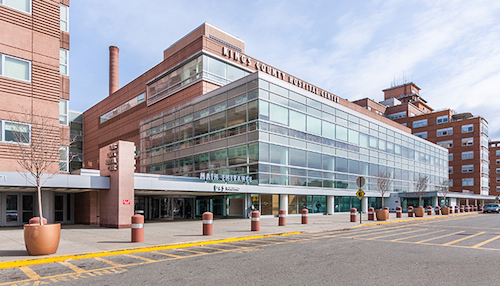New York State Governor Andrew Cuomo called on the City to help fill a lack of federal funding to NYC Health & Hospitals (NYCHH) last week.
Last Friday, the nation’s largest health care provider was unexpectedly informed of a delay of about $380 million in unpaid Medicaid disproportionate-share payments (DSH), due to an “awaiting action” label from New York’s State Department of Health and the Division of Budget.
The payments were due on Sept. 30, the deadline for this fiscal year, but according to NYCHH, the federal dollars have been delayed “for weeks,” leaving the safety-net hospital scrambling to fill the “gap” in federal funding. The dollars account for one-third of the operating budget for NYC Health & Hospitals, according to hospital officials.
The hospitals expected to be directly affected by the funding cuts are SUNY Upstate Medical Center, H+H, Westchester County Medical Center, Nassau University Medical Center and Erie County Medical Center and SUNY Downstate Medical Center, along with Brooklyn’s city hospitals – Coney Island hospital Coney Island, Kings County hospital in East Flatbush and Woodhull in Bushwick.

Cuomo, in a statement last week, called on the city to use its $4 billion surplus to help provide financial support to the struggling H&H hospitals.
“New York City with a $4 billion surplus needs to help H+H. The situation is clear, the first source of financial assistance for these hospitals must be their associated local governments and SUNY. There is no passing the buck. But make no mistake, if our federal delegation fails in stopping these cuts, they will hurt,” said Cuomo.
Cuomo went on to urge the federal government to release the funds, referring to the incident as a “missile that appears will hit New York this Sunday.” Cuomo went on to blame the Trump Administration in following through with the reduction of the DSH program, the federal program that provides adjustment payments to give additional help to hospitals that serve a significantly disproportionate number of low-income patients.
DSH payments have been the target of reduction for years, starting in FY2014, under the assumption that hospital’s uncompensated care costs would decline as insurance coverage increased under the Affordable Care Act (ACA) or Obamacare.
According to reports, the federal DSH payments are slated to be reduced by $2 billion in fiscal year (FY) 2018, which begins October 1, 2017. Additional reductions will occur each year through FY 2025.
“I expect that these cuts will ripple throughout the healthcare system and affect virtually every hospital statewide. New York State has a $4 billion deficit and is not in a position to make up funding,” added Cuomo.

However, Mayor Bill de Blasio has already bailed out the failing hospital system, when he budgeted for a bailout last April, promising to not close any hospitals or layoff any hospital workers. The city hospitals employ about 18,000 DC37 public sector union workers.
The city already pumps $1.8 billion a year into the public hospital system, through the Mayor and City Council that includes the jail health care.
Last Friday, NYC Health & Hospitals (NYCHH) interim CEO Stanley Brezenoff, in a meeting with the board of directors, called the move “perplexing” and was quick to note the financial difficulties the state public health system will incur under the budget cut.
“We have learned that the state is not going to provide in the time frame that we have expected, $380 million, that we have in effect have earned, deserve and have counted on in our overall financial plan. We do not understand why this money is being held. I’m going to have to take measures to be more stringent on judgement calls around expenditures. And I’m going to have to be more deliberate and selective on judgements surrounding new expenditures” said Brezenoff.
Brezenoff went on to note that all voluntary and major public hospitals except for the State University of New York hospitals and NYC Health & Hospitals have received their allocations. New York will receive $330 million less in fiscal 2018 and $829 million less in fiscal 2019, according to the state Department of Health.










